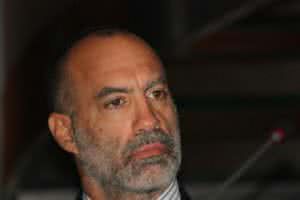Author: Vision & Global Trends – 28/02/2019
#ZarifCase– WRT – Whatsapp Round Table
What it has happened to Iran with Minister Zarif. We talk about with some experts of international politics.
V>: Just a few days after the celebrations of the fortieth anniversary of the Revolution, the Minister of Foreign Affairs Zarif resigned. Has a political crisis really opened between the Rouhani presidency and the Supreme Leader Khamenei?
V>: Within the real power relations, the political component that refers to the Pasdaran comes out strengthened by the resignation of Zarif?
V>: Will there be radical changes in international relations between Iran and the US? And between Iran and the main countries of the Middle East?
Marcello De Angelis – expert of international politics
 Western political categories are hard to apply on iranian domestic debate. Words such as moderate ora radical, progressive or conservative are not fit to portray iranian reality.
Western political categories are hard to apply on iranian domestic debate. Words such as moderate ora radical, progressive or conservative are not fit to portray iranian reality.
The iranian debate is more pragmatical than ideological, based on shifting of power balance. To simplify we might draw a line between those who concentrate on the strife of Iran to mantain and develope a leading regional role, strengthening support to shite allies in Iraq, Lebanon or elsewhere, and those who are more interested in better international trading conditions and consequent improvement on domestic well being. The first faction is more military, the second more business oriented.
Us, Un and Eu, have always played on these differences to propose an exchange between better trade conditions and the lift of sanctions and Iran pulling back from regional and international involvement.
Foreign minister Mohammad Javad Zarif presented a few days ago his resignations with a post on istagram, which were proptly rejected by President Rouhani who also launched an hashtag of solidarity towards his FA minister.
Zarif is the architect of the deal of 2015 on nuclear proliferation signed in Vienna with world powers. The deal had given hopes to iranians about the end of sanctions and the possibility of better economical conditions for families, small and medium enterprises and ordinary folks and a development of the internal market.
In 2015 the iranian public saluted the deal as the biginning of a new era of well being, peace and development. After the election of Donald Trump, the inevitable alliance of Iran with Russia to support president of Syria Assad against Daesh and the worsening of Yemen crysis, this enthusiasm was put out and critisism arised against minister Zarif who was accused of having served the interest of western powers instead of those of iranian people. The fact that western medias started nicknaming Zarif “the american”, was no help to his reputation, although probably the intent of those journalists was to benefit Zarif with a patent of moderation and openmindedness.
It has to be underlined that, even if iranian domestic politics may present harsh dissents and oppositions, no politicians could survive the suspect of being a friend of Israel or the Usa, which are still considered by the vast majority of Iranian as the eternal enemies of Iran, even for those who have no passion or no memory for the islamic revolution.
Zarif resignations are probably to be considered as a tactical move to consolidate his position into the government, reaffirm Rouhani’s trust for his FA minister and silence criticism.
Côme Carpentier De Gourdon –Convener of the Editorial Board of the WORLD AFFAIRS JOURNAL, New Delhi, India.

It appears that Zarif was upset by the criticism of his attempts to save the nuclear deal with Europe from the radical faction and in disagreement with their hardline policy. The Rouhani Government is worried about the degradation of the Iranian economy and social structure and would like to reopen negociations with the US in some way.
Too early to tell if the Pasdaran will reinforce their control of foreign policy. They are improving Iran’s militarycapabilities but that is of no great use if there is no war and only the continuation for many years of a crushing embargo made worse by a campaign of covert (US-Israeli-Saudi) destabilisation
I don’t see yet how radicalchange can take place as long as the Trump-Bolton-Pompeo-Netanyahu-MBS coalition remains. At this point for Iran to get out of its predicament would probably require Tehran to give up on its ballistic missile programme and renounce its policy to gain and maintain regional influence whihch would faciliate the fall of the Islamic Regime. Like China. Venezuela, Russia and even the EU Iran probably feels it has to wait the Trump regime out.
Zeno Leoni – is Teaching Fellow in ‘Challenges to the International Order’Defence Studies Department – King’s College London Defence Academy of the UK – Ministry of Defence
While  the resignation of Iran’s Minister of Foreign Affairs was not expected, it is easy to see the frustration that led to this decision. Mohammad Javad Zarif’s exclusion from a meeting in Tehran with Syrian President Bashar al-Assad was only the last straw. In fact, the main reason why the position of Zarif has increasingly become an uncomfortable one is Donald Trump’s hawkish agenda towards Iran and the shredding of the Nuclear Deal.
the resignation of Iran’s Minister of Foreign Affairs was not expected, it is easy to see the frustration that led to this decision. Mohammad Javad Zarif’s exclusion from a meeting in Tehran with Syrian President Bashar al-Assad was only the last straw. In fact, the main reason why the position of Zarif has increasingly become an uncomfortable one is Donald Trump’s hawkish agenda towards Iran and the shredding of the Nuclear Deal.
Zarif was one of those Iranians who pushed for the Nuclear Deal but at the time he faced the attacks of hardliners, particularly from the pages of the newspaper Kayhan. While during the negotiation there was a high degree of consensus that kept the voices of hardliners low, Trump’s turncoat makes Zarif look like a fool and allows anti-American groups to become more vocal.
It is not clear, however, whether Zarif’s decision signals or will bring to a political crisis between the Rouhani presidency and the Supreme Leader Ali Khamenei. At the time of the deal, Khamenei had been explaining for some time that apart from Israel, there is no reason why Iran should not have friendly relationships with other countries including the United States. This was evidence that also the Supreme Leader found the Nuclear Deal somehow convincing. But if Trump’s move is perceived as cheating, this could have consequences and open a domestic debate between those advocating for more integration within the global order such as Rouhani and Iran’s entrepreneurial class, on the one hand, and the guardians of Iran’s politico-religious identity – and therefore security – such as Khamenei and the Pasdaran. While it makes sense to believe that the Pasdaran will be strengthened by this crisis, Khamenei will have to sign or not the resignation letter. Because many argue that the Supreme Leader has a positive relationship with the Zarif, he may reject the request and actually strengthen the position of the government.
The outcome of this tension will largely depend on how insistently the European Union and UK, France, Germany, and Russia – together with China – will advocate for a restoration of the agreement – while hoping that in 2020 Trump will not be re-elected. At the moment, they are urging Teheran to stick to the deal and eventually look for alternative routes to bypass Washington, D.C.’s sanctions.
Ultimately, this leads to the broader issue of world order. The current turmoil is a chance for the European bloc – in particular, the Franco-German alliance – to prove that is increasingly willing to accelerate with regard to a project of European defence. This is important in light of the post-2008 transition in American foreign policy. Both Obama and Trump in their national security strategies have indicated that in the Middle East the regional allies will have to become more responsible for their security, and this has coincided with a steep increase in armaments spending in Saudi Arabia. However, Trump’s current stance towards Iran is incoherent with the new strategy of off-shore balancing. This may be explained by the need for Trump to create a scarecrow and to make the Israel lobby happy, although Washington, D.C. will monitor the increasing cooperation between Moscow, Teheran and Beijing.
Ksenia Tabarintseva Romanova, Assistant Professor, Ural Federal University, Russia

As for the resignation of the head of the Iranian foreign Ministry, Zarif, to be more precise, the resignation statement, I would be careful at the current stage to draw far-reaching conclusions. Today it became known that President Rouhani did not accept his resignation and Zarif has already signed agreements with his Armenian colleagues as Minister. Moreover, according to Iranian politicians, Zarif has resigned at least 13 times.
I do not think that the situation has changed radically and the statement of the Minister testifies to the escalation of the political crisis. As for the radical changes in relations between the US and Iran, in fact, none of the parties is interested in them. Iran has repeatedly made concessions, showing willingness to cooperate, for example, agreements on the nuclear program, but even this has not changed Washington’s attitude. In turn, Secretary of state Pompeo said that the resignation will not change relations with the Islamic Republic.
Given the tone of his statement, it can be concluded that a radical change for the United States is possible only with the complete dismantling of the Islamic political system, and Iran in its relations is quite conservative, including with regard to its near-Eastern neighbors.
Alessandro Politi, Political and Strategic Analyst

I think that the resignation of foreign Minister Zarif has last little to do with the anniversary of the revolution and much to do with balancing act within the Iranian power leaders.
We should not forget that in this country there are not only tendencies depicted as one side against another, but there is a strong consensus in keeping together the actual power constellation by adapting it. I think that sometimes the alleged splits between President and Supreme Guide are more emphasized outside than they are real inside. And I think that the Soviet experience gives us a good indication of that, taking into account all the differences between the two regimes.
The Pasdaran will be stronger after this crisis? It is still too early to assess. Nevertheless, looking at the issue from their own side, they have achieved indeed, together with Russia, an important success in Syria, but they got it precisely thanks to Russia. Iranians have a very long memory knowing very well that tsarist Russia annexed the north of Iran and that Russian power now is nice, it can be even a reliable ally, but it can turn nasty very quickly. The relation is obviously dictated by necessity but I suspect that under the surface it is at arm’s length. By the way, the same is happening between China and Russia. So the Pasdaran have a success they can boast, but it is much more nuanced if you look at the whole picture.
Radical changes between Iran and the US (and one could also put immediately together also Israel and Saudi Arabia)? Apparently the intent of these three other actors is to change regime but, unless they are really overconfident, they know very well that the Iranian government and power structure is much more stable and resilient than they would like. We should not forget that they weathered eight long years of war with Iraq, when they were just a young revolution and Baghdad was supported by what then could be called the West.
Iran knows very well that an overreaction opens the road to unpredictable scenarios. I suspect that more than radical changes you will get noticeable shifts in temperature and despite being the Gulf a hot place, well the temperature is on deep freeze.
I would like to add also a wider consideration. Evidently the problem with Iran is Iran itself, even if it would be a Westminster democracy. It’s very big, it is in fact very powerful despite all the other countries around it and the real geopolitical problem is where does Iran fit in. Now, I suspect that, without a different approach i.e. not the zero-sum game that is so loved by Middle Easterners, this problem will not be solved but all the actors will lose time, money and probably lives instead of concentrating on the underlying issues.
The climate is changing, oil is peaking (no matter if we talk about physical availability, financial return or acceptability of fossil energy) and many of these economies are still wed just to oil. This is a bad scenario and it is precisely the same scenario that the actual de facto ruler of Saudi Arabia wants to change.
It is very similar to the situation between India and Pakistan, both countries have an enormous potential but if they do not stop this long conflict, they will never free the necessary resources to flourish and escape the trap of zero-sum games. This is something that the Middle East, especially the Gulf and the Mashreq, should have learnt since decades but still is not able to translate into practical changes. I suspect that in the end the international community has to help these governments precisely to do that. And not to be locked in very sterile and, I would say, useless conflicts.
Alberto Cossu, Analyst of Vision & Global Trends

The resignation given by the Islamic Republic of Iran foreign minister Mohammad Javad Zarif and rejected by President Rouhani is a sign that something is happening within the “resilient” Iranian regime.
The most intransigent wing that of the Pasdaran is making its voice heard, and the divergences will become more and more clear, and insidious if they will involve the President and the Supreme Leader.
The American sanctions, by admission of President Rouhani, are deploying their effects by tightening the country in a vice, starting with the weaker groups of the population.
In the next few months, the political establishment is expected to undergo an increase of pressure, and the clash will likely soar involving the leadership.
In a country with a strong nationalistic feeling, this will find strong barriers to avoid overflowing.
The constitutional structure of Iran, in fact, establishes effective rules able to bring power to synthesis. Apparently, it looks like a democracy, but it’s an autocratic system designed with great intelligence, so that power gaps are unlikely.
Although this strong resilience, the US can deploy a multi-dimensional sanctions that may challenge it.
In this framework the role of Russia, which shares the goal of reaching a reasonable, and stabilizing solution in the Near and Middle East with the United States, will be crucial.
Therefore, if the Federation really wants to achieve that goal it will be forced to act to push Iran on more reasonable and less intransigent stance.
At this stage, the geopolitical framework might change. However, if this did not happen, the course of events would be further complicated.
Zarif still seems to enjoy considerable political consensus and strength, since his resignation was dismissed by the President, and more than 150 political personalities expressed support to him.
If, however, the economic crisis will get worse, affecting the whole Iranian economic system, things might turn in favor of the most radical and extremist forces that demand the exit from the JCPOA, and a disruptive foreign policy.
Europe is not able to offer much help to Iran. The special vehicle called Intex, for the time being, has a very limited range of action that is not able to cushion the effects of American sanctions. In a short time, other substantial aids are not in sight.
Intex is limited to humanitarian transactions. To tell the truth, Brussels does not seem to offer solutions that can affect the economic health of the country and move it away from a hard time. The big European companies have preferred to withdraw and the small ones are not able, in case they decide to bet on the Iranian market, to put into motion the investments to restart the economic growth that the country needs.
A sudden change of foreign policy does not seem conceivable, since the resignation has been dismissed.
If, however, the pressure exerted by the most intransigent wing should prevail which might lead to the appointment of a new foreign minister, it is possible changes may occur. But the relations with Iran’s main competitors of the region will suffer a deterioration such as those with the USA.
At the moment there are no stances that can justify the hope of opening a dialogue with the USA and other players in the area.
The Minister of Foreign Affairs Zarif, at the Munich Conference, has, in fact, harshly criticized the US without leaving a minimum glimmer of hope, accusing them of destabilizing the area and pursuing a policy of pure hegemony.
US Vice President Pence has done nothing but hack the charges by claiming that it is Iran that destabilizes and threatens other countries primarily Israel.
In a such deadlocked situation it is currently overly optimistic to envisage that the main players may be available to pursue positive solutions.
In this framework, only Russia appears to have some chance of getting the situation exit from the tunnel, but this depends on Iran’s flexibility, as President Putin well knows.
Carlos A. Pereyra Mele,- Director of Dossier Geopolitico

There is an undeniable strain between the conservative and moderate wing within the Iranian political establishment. The socio-economic outlook is getting worse and it is expected to affect the political framework by increasing the rate of conflicts . Anyway, I think that talking about a deep crisis between Rouhani and Khamenei might be an overstatement.
It is clear that the Islamic Revolutionary Guards, Sepah or Pasdaran, have been strengthened by their victorious participation in the war in Syria. They also were very active in the recent visit of the President of Syria to Tehran Bashar Al Assad, which was marked by the non-presence of Zarif.
But one thing is the politics of the Syrian conflict and quite another is Iran’s objectives throughout the region. As the result, there is a need for a balance of the parts that make up the Iranian internal front.
Therefore, as we say here: the blood did not reach the river, because Rouhani did not accept the resignation of Zarif who also received the support of many legislators of the Iranian parliament
Question: Will there be radical changes in international relations between Iran and the United States?
Answer: A change will be related on the attitudes of the tandem Trump / Netanyahu, which with its actions has strengthened the hard anti-negotiation wing.
Anyway, I do not believe that this will lead Iran to make irreversible decisions about the confrontation. Infact, this is precisely what the US and Israel are trying to achieve to justify their actions before the world and their most reluctant European partners to accompany them.
The Revolution is strong. There is pressure from the United States for Iran to sign the conventions on terrorism. This would mean to put a noose around the neck of Iran.
The toughest revolutionary line, strengthened by the Trump’s rudeness as regard the 5 + 1 agreement, will be more and more active in the future.
Iran has already established itself as a regional player in the Middle East, and this is due to the influence it achieved in Iraq, Syria and Lebanon. Therefore, Iran deserves a legitimate role in the negotiations aimed at deciding the new structure of the power in whole region. The influence of Iran can’t be ignored anymore by the global players such as USA and Russia.
Cesare Ciocca, Rear Admiral

Iranian foreign policy is closely dependent from the particular geopolitical and strategic position of the country. It is in the middle of a cross road, between:
– two key maritime areas: the Gulf and the Caspian Sea, both rich of natural resources and object of the interest of several powers;
– between Central-southern Asia and Middle East, Euro-atlantic powers.
It is therefore naturally forced to have close relations with global powers like China, Europe and US and others like India and some emerging countries in Africa.
Secondly, Iran has a specific cultural and historical reality, substantially different from all its neighbours. Its citizens feel different and very proud of their identity, their cultural and intellectual level that they perceive higher than the others.
Thus, any specific event can be explained: there is an apparent ambiguity between the need of cooperation and exchanges with all international actors and in the same time the aspiration to a sort of supremacy, represented also by the strong religious feeling.
In my view, the last events are the logic consequences of this multidimensional mature of Iranian politics and expression of power in the region. In short, Iranians are potentially excellent partners in cooperation and development, but need to be “convinced” that international rules are also conditions for their development and prosperity. So the two natures of the Iranian politics should meet and find a unique and more coherent approach
Previous contributions:
Alberto Negri È con la benedizione dell’uomo forte di Teheran che Zarif può proseguire nel suo incarico governativo
Alberto Bradanini L’ambasciatore Bradanini sul caso Zarif. Nessuna crisi che il ferreo sistema iraniano non possa gestire
Vincenzo Maddaloni Le dimissioni di Zarif? Lasciate fare agli Ayatollah, tutto il resto sono chiacchere
Alberto Cossu Le dimissioni di Zarif
Roberto Toscano Zarif resta: i radicali hanno perduto una battaglia. Una nuova guerra è appena cominciata
